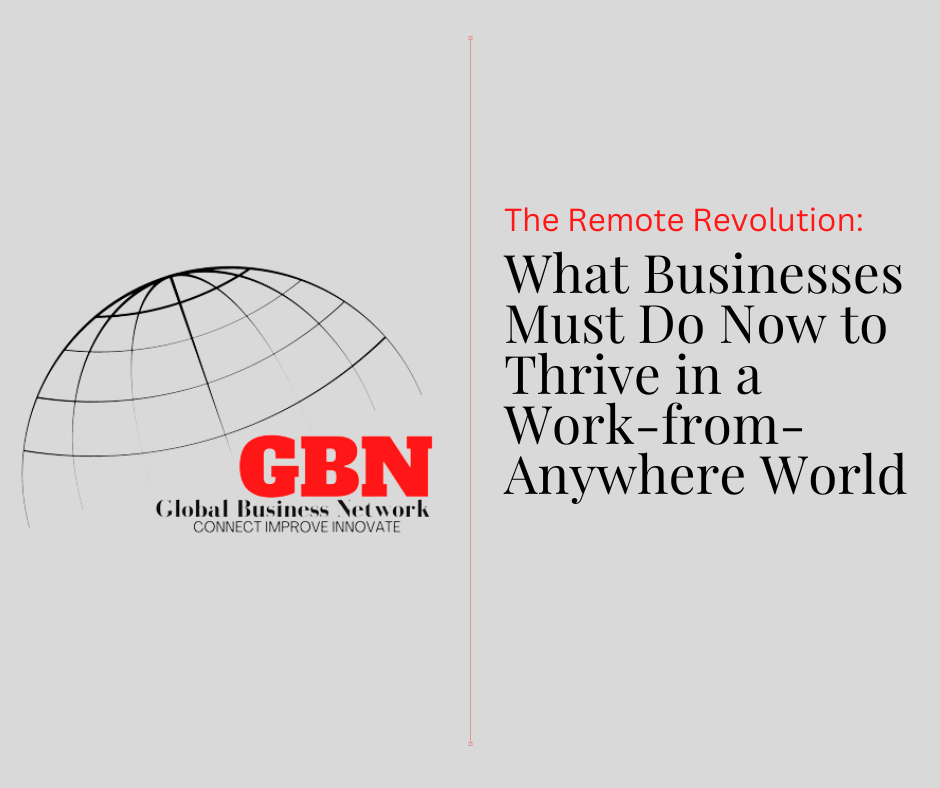
The Remote Revolution: What Businesses Must Do Now to Thrive in a Work-from-Anywhere World
In a world where the physical boundaries of office space have been shattered by digital transformation and global disruption, the way we work is undergoing a historic shift. Remote work is no longer a trend — it is the new norm. For businesses, this isn’t just a technological pivot; it’s a cultural, operational, and strategic transformation that demands immediate and thoughtful action.
If you’re a business owner, executive, or entrepreneur and you’re still clinging to outdated models of in-office productivity, you’re putting your business at risk. The future of work is not coming — it’s already here. And those who fail to adapt will fall behind.
Why Remote Work is Here to Stay
The COVID-19 pandemic was a catalyst, but not the cause. Even before the world shut down, top talent across industries was already seeking more flexible working arrangements. Now, it’s a baseline expectation. From Silicon Valley to Southeast Asia, skilled professionals are opting for roles that offer autonomy, flexibility, and work-life integration. This is not a temporary shift. This is a permanent evolution.
If your business cannot accommodate remote or hybrid models, you’re not just losing productivity — you’re losing relevance.
The Emotional and Economic Cost of Inaction
Every day you delay adapting to remote work, you’re losing three vital assets:
-
Talent:
The best employees now demand remote or hybrid options. Without them, you’re left with fewer choices and less innovation. -
Trust:
Micromanaging from afar destroys morale. Remote work is not just about the tools — it’s about trust, communication, and leadership maturity. -
Time:
Competitors who embrace remote infrastructure are moving faster. They’re hiring faster, operating leaner, and scaling globally — without borders holding them back.
You cannot afford to wait. You must evolve now.
What Businesses Must Do to Adapt — Immediately
1. Rewire Your Mindset, Not Just Your Tools
This is not about switching to Zoom and Slack. It’s about rethinking how work gets done. Replace control with collaboration. Replace attendance with accountability.
2. Prioritize Outcome-Based Work Models
Stop measuring success by hours worked. Shift focus to deliverables and results. Empower employees to own their schedules and take responsibility for outcomes.
3. Invest in Cybersecurity and IT Infrastructure
Remote work opens up digital vulnerabilities. Protect your business with secure access protocols, cloud-based systems, and continuous data protection strategies.
4. Create a Culture of Connection
Remote work doesn’t mean isolation. Build emotional intelligence into your virtual teams. Celebrate wins, communicate transparently, and listen often. Culture is now digital — design it with care.
5. Train Leaders for Remote Excellence
Traditional management techniques do not translate into the virtual world. Your managers must learn how to lead with empathy, clarity, and digital fluency.
6. Embrace Global Hiring
Remote work allows you to tap into the global talent pool. Don’t limit your growth by geography. Hire for skill, not proximity.
The Urgency: Your Business Depends on This
This is not just a business strategy; it’s a survival strategy.
The businesses that are thriving today — startups, tech companies, even agile governments — have leaned into remote-first thinking. They’re not asking, “When can we go back to the office?” They’re asking, “How can we build something even better from here?”
If you don’t adapt now, you won’t be around later.
And that’s the hard truth.
Your Next Step
If you’re reading this and feel even a flicker of discomfort — that’s your sign. It’s time to stop watching and start acting.
Start small:
-
Audit your team’s remote readiness.
-
Have honest conversations with your staff.
-
Redesign one department for remote-first.
-
Invest in learning, leadership, and long-term digital transformation.
The world has changed. Your business must too.





